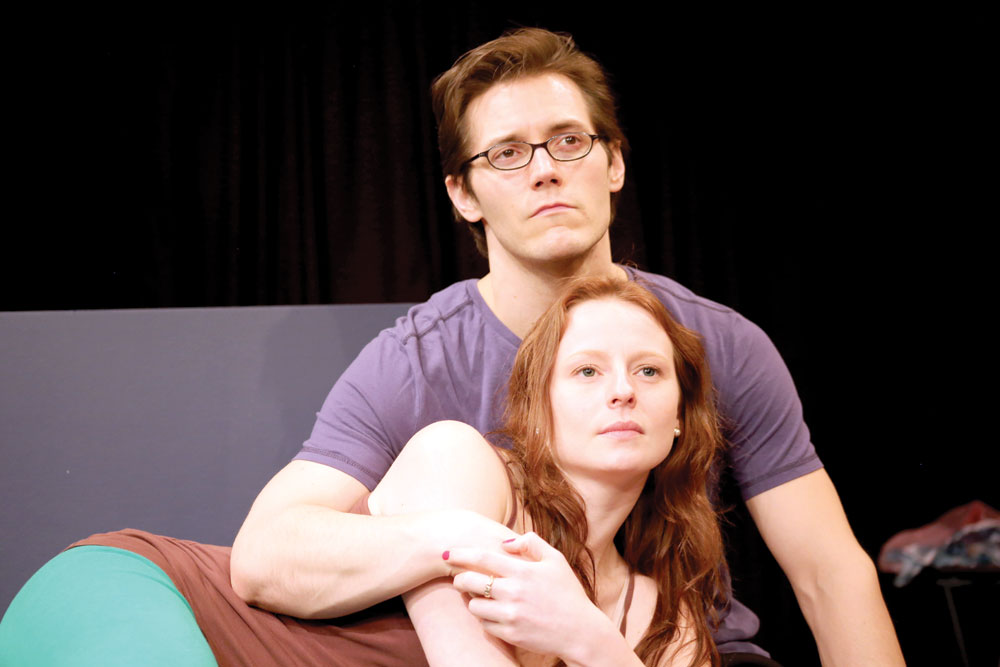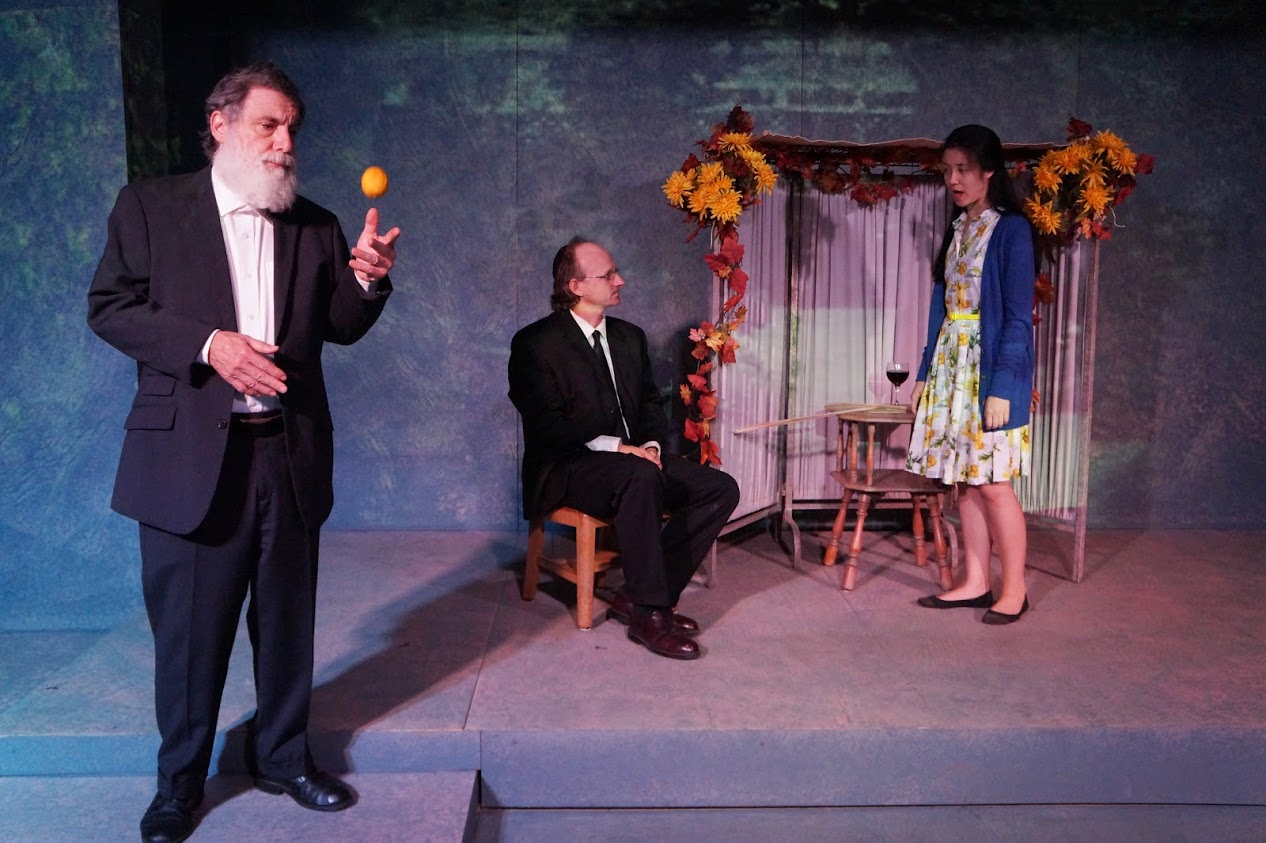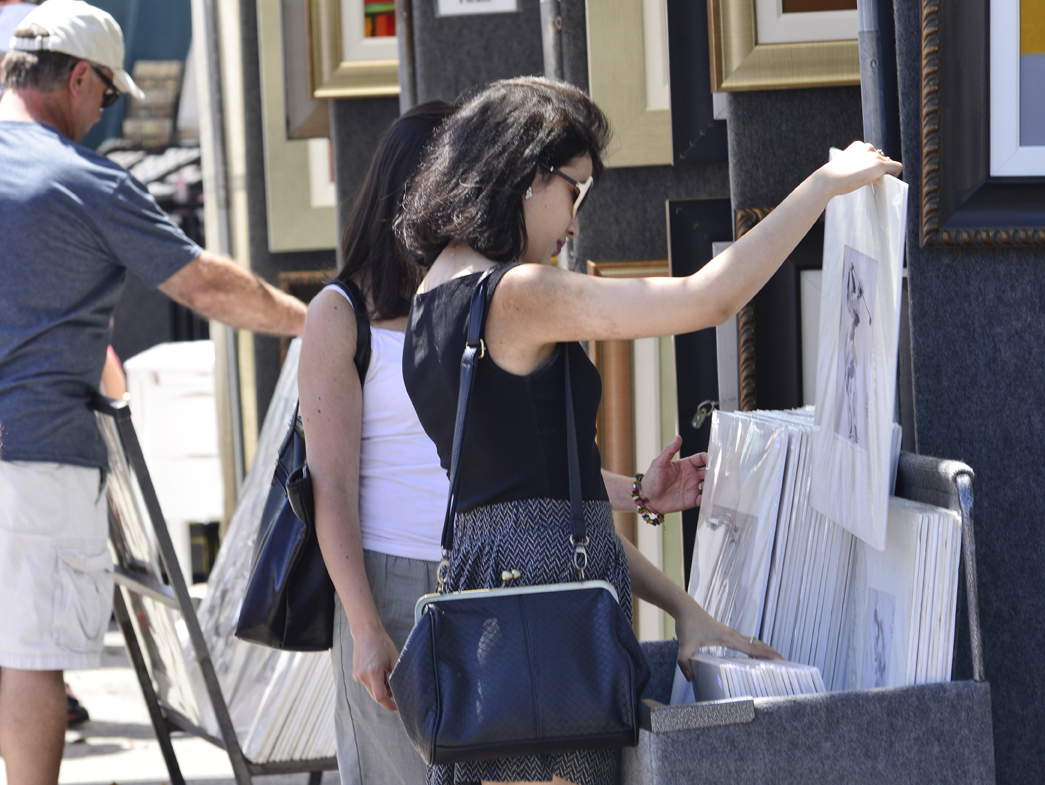Ensemble’s ‘The Night Thoreau Spent in Jail’ is transcendent
By Bob Abelman
“It’s a marvel to hear the way the words roll out,” says the illiterate Bailey after listening to the philosophical musings of his young Harvard educated cellmate early in Robert Edwin Lee and Jerome Lawrence’s “The Night Thoreau Spent in Jail.”
“A marvel” perfectly describes Ensemble Theatre’s eloquent staging of this loquacious, occasionally sanctimonious play originally earmarked for production by community and collegiate theaters.
In 1846, the essayist, philosopher, abolitionist, naturalist and scofflaw Henry David Thoreau spent a night in jail after refusing to pay tax money that would support the war President James Polk singlehandedly waged against Mexico. This incident later provided the basis for Thoreau’s essay “On the Duty of Civil Disobedience” and serves as the inspiration for Lee and Lawrence’s fictionalized account of that evening and the events leading up to it.
And while the play offers insight into the man and his meditations – his transcendentalist world view, his witty disregard for organized religion, and his penchant for nature and civil disobedience – it also concerns itself with what weighed heavy at the time of its writing 125 years later.
In their 1955 play “Inherit the Wind,” Lee and Lawrence turned the 1925 Scopes “Monkey Trial” debate over evolution into not-so-clandestine commentary about America living under mid-century McCarthyism. The playwrights used the teaching of creationism as a metaphor for anything that limits the right of a free people to think.
So while their 1971 play “The Night Thoreau Spent in Jail” takes place in 19th century Concord, Massachusetts and addresses the unjust American-Mexican war, it is very much a stone-cold treatise about the unjust war in Vietnam.
True to Thoreau’s transcendentalist leanings, the play bounces around with little attention to the confines of linear storytelling, which director Celeste Cosentino turns into creative and wonderfully theatrical staging. Scenic designer Stephen Vasse-Hansell’s rendering of a skeletal jail cell serves as the central location around which various scenes from various times occurring in assorted locations revolve. To the left and right of the cell and its two wood benches are large screens that display projected images to help track a particular time and place.
And true to the central tenet of transcendentalism, Cosentino has allowed the divine master plan that connects all nature and humanity to guide her casting of the featured players in this play.
Geoff Knox as Henry David Thoreau, Joe Pine as his brother John, and Terry Burgler as his mentor Ralph Waldo Emerson are a company member, an associate producer/performer, and a founding artistic director/performer with Akron’s Ohio Shakespeare Festival, respectively.
As if intended by divinity to serve as preparation for this particular production, their training and years of performance of Elizabethan plays have provided a skillset that translates marvelously to a work like this. Each actor has the ability to master volumes of text, can eloquently and effectively execute poetic prose, and uses the language their characters are provided to give them definition and dimension.
And the rest of the 15-member ensemble – particularly the charming Sara Bogomolny as the love-interest of the Thoreau brothers, Allen Branstein as the buffoon Bailey, Scott C. Hare as the insufferable Deacon Ball, Leslie Stager as the endearing Lydian Emerson, and Whit Lowell as the clueless Sheriff Sam Staples – follow suite.
The only hiccup occurs late in the play, when Lee and Lawrence try their hand at overt artistry to drive home a poignant point. Here, they theatrically transport Thoreau into the middle of the Mexican-American war. Intended to be a surreal nightmare layered with cannon blasts and a blur of activity, dramatic lighting and special effects, Cosentino’s staging of this scene is woefully underwhelming.
It also misses an opportunity to reinforce the relevancy of this play to modern day America. The projected images from the Mexican-American and Vietnam wars could have been infused with images from Afghanistan and Iraq, and the subtle underscoring of Crosby, Stills, Nash and Young tunes could have also employed something more contemporary.
Still, Ensemble’s “The Night Thoreau Spent in Jail” is a wonderful night of theater – as genuinely thought-provoking as it is beautifully performed. CV
On stage
WHAT: “The Night Thoreau Spent in Jail”
WHERE: Ensemble Theatre, 2843 Washington Blvd. in Cleveland Hts.
WHEN: Through Dec. 11
TICKETS & INFO: $12-$24, call216-321-2930 or visit ensembletheatrecle.org
Bob Abelman covers professional theater and cultural arts for the Cleveland Jewish News. Follow Bob at Facebook.com/BobAbelman3.
Originally published in the Cleveland Jewish News on Nov. 19, 2016.
Lead image: Geoff Knox, from left, as Henry, Scott C. Hare as Deacon Ball and Terry Burgler as Waldo. Photo | Celeste Cosentino











